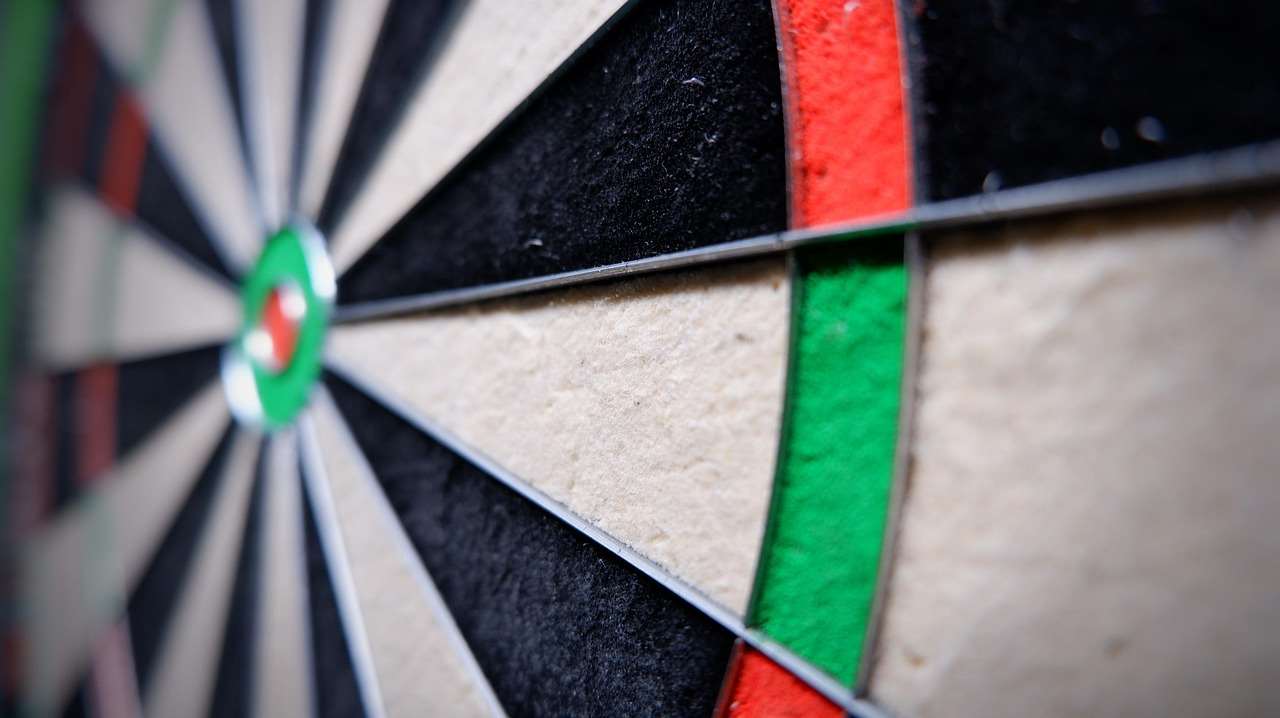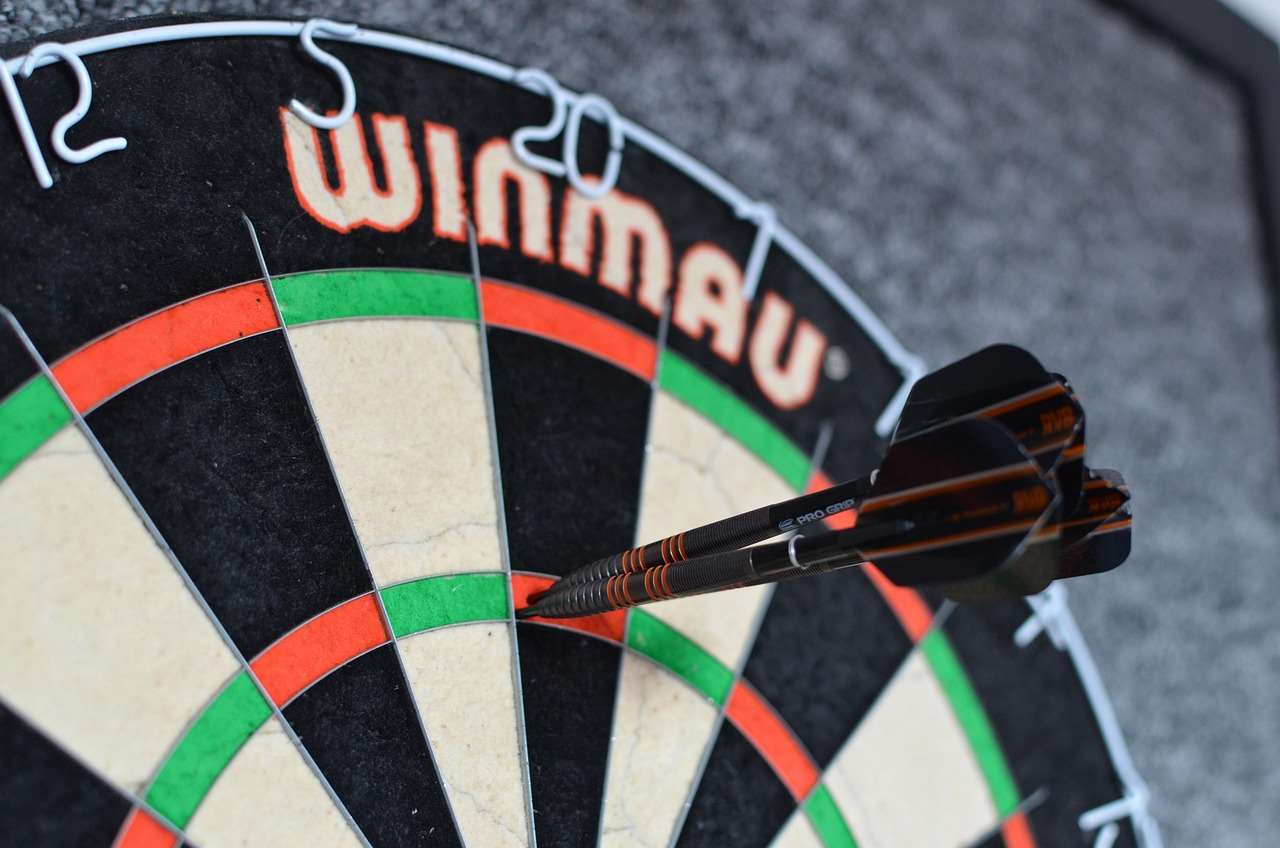Mastering darts etiquette and social norms is crucial for enjoying the game and creating a positive atmosphere. This guide covers the unwritten rules, common courtesies, and expected behaviors that ensure fair play and respect among players. You’ll learn everything from pre-game rituals to post-game conduct, making you a welcome participant in any darts setting.
⚠️ Still Using Pen & Paper (Of een schoolbord)?! ⚠️
Stap in de toekomst! De Dart Teller -app behandelt alle scoren, stelt kassa voor, en volgt uw statistieken automatisch. It's easier than you think!
Probeer de Smart Dart Teller -app gratis!Klaar voor een upgrade? Klik hierboven!
Understanding Darts Etiquette And Social Norms
Darts etiquette and social norms might seem trivial, but they are the glue that holds the darts community together. Understanding these customs allows you to participate fully, demonstrate respect for your opponents and the game itself, and contribute to a positive social environment. Failing to adhere to these norms can lead to awkward situations, strained relationships, and even exclusion from certain groups.
Therefore, knowing the unspoken rules is just as vital as knowing the rules of the game. Let’s delve into the essential aspects of darts etiquette.

Pre-Game Etiquette: Setting the Stage for Fair Play
Before you even throw your first dart, certain protocols help establish a respectful and organized environment. This includes preparation, introductions, and agreeing on the rules.
Preparing the Dartboard and Playing Area
The dartboard should be properly mounted at the correct height (5 voeten 8 inches to the bullseye) and distance (7 voeten 9 1/4 inches from the oche). Ensure adequate lighting to avoid shadows that could impair vision. De oche, or throwing line, must be clearly marked and unobstructed. Discuss any potential obstructions with your opponent beforehand to avoid mid-game disputes. Correct setup is crucial for fair play.
Introductions and Friendly Greetings
It’s customary to introduce yourself to your opponent(S) before a match. A simple handshake or greeting shows respect and sets a positive tone. If you’re playing in a league, introducing yourself to the scorekeeper or match official is also appropriate.
Agreeing on the Rules and Format
Before starting, confirm the specific rules and format of the game. This includes the starting score (usually 501 of 301), the type of checkout required (double out or straight out), and any specific house rules that might be in effect. Clear communication prevents misunderstandings later on. You might want to discuss how to start a darts league with your opponent if they also have an interest in organized play.
During the Game: Respect and Fair Play in Action
During the game itself, numerous unwritten rules govern behavior to ensure a fair and enjoyable experience for everyone involved. These darts social norms cover everything from movement and noise to offering and receiving advice.
Respecting Your Opponent’s Throw
This is perhaps the most crucial aspect of darts etiquette. When your opponent is at the oche, remain still and quiet. Avoid making distracting movements, noises, or comments. Do not walk in their line of sight or stand directly behind them. Allow them to focus and concentrate without unnecessary distractions. This shows fundamental respect for their game.
Avoiding Unnecessary Movement and Noise
Even when it’s not your opponent’s turn, keep unnecessary movement to a minimum. Avoid pacing, fidgeting, or making loud noises that could disrupt their concentration. The goal is to create a calm and focused environment for everyone.
Staying Behind the Oche When Not Throwing
Always stay behind the oche when you’re not throwing your darts. This prevents accidental collisions and ensures a clear throwing space for the current player. This seemingly small action is a critical part of darts etiquette.

Retrieving Your Darts Properly
When retrieving your darts from the board, avoid bumping into the board or other players. Be mindful of your surroundings and retrieve your darts carefully to avoid damaging the board or injuring someone. Take care to avoid bending the tips or flights.
Honesty and Fair Scoring
Always be honest about your score and avoid intentionally misrepresenting your throws. If you’re scoring for your opponent, pay close attention and ensure accuracy. Fair scoring is paramount to maintaining the integrity of the game. You’ll find a strong darts culture and community guide emphasizing integrity.
Offering and Receiving Advice (With Caution)
Offering unsolicited advice is generally frowned upon, especially during a match. Unless specifically asked, refrain from commenting on your opponent’s technique or strategy. If you *are* asked for advice, keep it concise and constructive. Remember that everyone has their own style and preferences.
If you’re looking for guidance, consider joining a local building local darts league club guide or seeking advice from experienced players outside of competitive matches.
Dealing with Disputes Fairly
Disagreements can sometimes arise during a game, especially regarding scoring or rules interpretation. Address disputes calmly and respectfully. Refer to the official rules or consult a neutral third party for clarification. Avoid heated arguments or personal attacks. The goal is to resolve the issue fairly and amicably.
Post-Game Etiquette: Showing Good Sportsmanship
The game doesn’t end when the final dart is thrown. How you behave after the match is just as important as your conduct during the game. Good sportsmanship and graciousness, whether you win or lose, are hallmarks of a true darts player. This embodies the best of darts etiquette and social norms.
Offering Congratulations or Commiserations
Regardless of the outcome, offer your opponent a sincere congratulations if they won or a genuine expression of sympathy if they lost. A simple “Well played” of “Tough luck” goes a long way in showing respect.

Avoiding Gloating or Sore Losing
Excessive celebration after a victory is considered poor form. Avoid gloating, boasting, or rubbing your win in your opponent’s face. Similarly, avoid making excuses or blaming external factors for a loss. Accept defeat gracefully and acknowledge your opponent’s skill. Nobody appreciates a sore loser.
Cleaning Up and Leaving the Area Tidy
Help clean up the playing area after the match. Pick up any stray darts, remove empty glasses, and ensure the area is left tidy. This demonstrates respect for the venue and the other players.
Acknowledging the Scorekeeper or Match Official
If a scorekeeper or match official was involved, thank them for their service. This is a simple gesture of appreciation for their time and effort. If you are thinking about setting up a darts club, you will need to consider roles like these.
Specific Situations and Considerations
While the general principles of darts etiquette apply across various settings, some specific situations warrant additional consideration. These include playing in leagues, tournaments, and casual games.
League Play
League play often involves more formal rules and expectations. Familiarize yourself with the specific league regulations regarding dress code, punctuality, and conduct. Respect the authority of the league officials and abide by their decisions. League play involves a more structured environment than casual games, and requires strict adherence to the rules.

Tournaments
Tournaments often have a higher level of competitiveness and scrutiny. Dress appropriately, arrive on time, and adhere strictly to the tournament rules. Maintain a professional demeanor both on and off the oche. Understand the tournament format before playing.
Casual Games
While casual games are generally more relaxed, the basic principles of darts etiquette and social norms still apply. Respect your opponents, avoid distractions, and maintain a positive attitude. Even in a friendly setting, courtesy and respect enhance the enjoyment for everyone. Consider it practice for competitive darts.
Addressing Breaches of Etiquette
What should you do if you witness a breach of darts etiquette? The appropriate response depends on the severity of the infraction and the context of the situation.
Minor Infractions
For minor infractions, such as accidental noise or movement, a gentle reminder is often sufficient. A polite “Excuse me, could you please be a little quieter?” can usually resolve the issue without escalating the situation.
Serious Infractions
For more serious infractions, such as intentional cheating or disrespectful behavior, a more direct approach may be necessary. Address the issue privately with the offending player and explain why their behavior is unacceptable. If the behavior persists, consider reporting it to a league official or tournament organizer. Understand the consequences of such behavior.
Knowing When to Let It Go
Sometimes, it’s best to simply let minor transgressions slide. Not every perceived breach of etiquette warrants a confrontation. Choose your battles wisely and focus on maintaining a positive atmosphere. A little forgiveness goes a long way.

The Benefits of Following Darts Etiquette And Social Norms
Adhering to darts etiquette and social norms offers numerous benefits. It fosters a positive and respectful environment, enhances the enjoyment of the game, and strengthens the darts community. By demonstrating courtesy and consideration, you contribute to a more welcoming and inclusive atmosphere for all players. Good promoting local darts begins with good sportsmanship and etiquette.
Uiteindelijk, understanding and practicing darts etiquette is about more than just following rules. It’s about showing respect for your opponents, the game, and the community. By embodying these principles, you’ll not only become a better darts player but also a more valued member of the darts community. Embracing these unwritten rules leads to a better experience for everyone. Understanding these ideas is just as vital as darts club administration guide principles. Don’t forget to think about organizing local darts league with these points in mind. Also, focus on recruiting members darts league club for expanding community.
Conclusie
Darts etiquette and social norms are integral to the game, fostering respect, eerlijkheid, and a positive community atmosphere. By mastering these unwritten rules, you contribute to a more enjoyable experience for everyone involved. From pre-game preparation to post-game sportsmanship, every action counts. Dus, embrace these guidelines, step up to the oche with confidence and courtesy, and become a true ambassador of the darts community. Now that you understand the importance of darts etiquette and social norms, go out there and put your knowledge into practice. Join a local league, participate in a tournament, or simply enjoy a casual game with friends. The key is to be mindful, respectful, and always strive to contribute to a positive and welcoming darts environment.
Hoi, Ik ben Dieter, En ik heb Dartcounter gemaakt (Dartcounterapp.com). Mijn motivatie was geen darts -expert - helemaal tegenovergestelde! Toen ik voor het eerst begon te spelen, Ik hield van het spel, maar vond het moeilijk en afleidend om nauwkeurige scores te houden en statistieken te volgen.
Ik dacht dat ik niet de enige kon zijn die hiermee worstelde. Dus, Ik besloot om een oplossing te bouwen: een eenvoudig te gebruiken applicatie die iedereen, Ongeacht hun ervaringsniveau, zou kunnen gebruiken om moeiteloos te scoren.
Mijn doel voor Dartcounter was eenvoudig: Laat de app de nummers afhandelen - het scoren, de gemiddelden, de statistieken, Zelfs checkout suggesties - zodat spelers puur kunnen richten op hun worp en genieten van het spel. Het begon als een manier om het probleem van mijn eigen beginners op te lossen, En ik ben heel blij dat het is uitgegroeid tot een nuttig hulpmiddel voor de bredere darts -community.